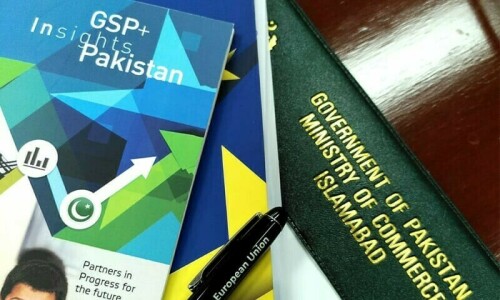After the upheavals of 1947, Karachi challenged the pre-eminence of Lahore almost overnight. Enriched by the presence of a viable harbour and the influx of motivated refugees, it rapidly became the new country's commercial capital. In another, deeper sense, therefore, the rivalry between Karachi and Lahore defines the polarities of modern Pakistan.
By the time you read this, Pakistan would have played two T20 matches and one ODI against South Africa, the ICC tribunal investigating spot-fixing charges against Pakistan would have convened, and perhaps even the PCB chairman Ijaz Butt might have been removed from office. In other words, the news cycle would have changed into something well and truly different.
Yet if you're a Lahore supporter, then you are almost certainly still gloating over Lahore's victory against Karachi in the Faysal Bank national T20 championship. And if, like me, you're a Karachi supporter, then you are probably still smarting from the stinging defeat.
Both teams were evenly matched for that final, although Lahore, with a galaxy of Pakistan stars, went in as slight favourites. Lahore Lions batted first and Karachi Dolphins allowed them to rack up 221, for which the bulk of the blame rests with some really shoddy Karachi fielding, including a series of spilled catches coming at crucial moments. Despite the daunting target, Karachi remained an ominous threat, with five big names right up front in the batting order — Shahzeb Hasan, Khalid Latif, Asad Shafiq, Fawad Alam, and Shahid Afridi. But the asking rate was just too punishing, and with Lahore holding on to their nerve as well as their catches, Karachi were eventually kept 37 runs short.
The spectacle attracted a capacity Gaddafi crowd, and it stands out as the jewel of an otherwise bereft home cricket season. Even the two captains, Karachi's Shahid Afridi and Lahore's Mohammad Yousuf, looked tense. They are both highly seasoned campaigners of international cricket and by now have pretty much seen and done it all, yet they could not escape the high stakes of a Lahore-Karachi clash. To be sure, the cricketing rivalry between Lahore and Karachi remains largely unspoken, although there is no argument that the feelings run deep. Lahore has dominated Pakistan's cricket affairs since inception, which is something that Karachi has always resented. Karachi's contribution to Pakistan cricket is enormous, and can be spelled out in hallowed names like Hanif Mohammad, Mushtaq Mohammad, Zaheer Abbas, Wasim Bari, Javed Miandad, Saeed Anwar, Moin Khan, Rashid Latif, Younus Khan and Shahid Afridi. Yet Pakistan's cricketing centre of gravity remains firmly entrenched in Lahore, and an undercurrent of bitterness prevails in Karachi that their players are the victims of selection bias.
There is in fact a great deal of such talk, although out of concern that it could fan the flames of ethnic division, it remains very much off-the-record and informal. But there is definitely something to be said for airing this issue, in the interest of promoting a healthy rivalry between Pakistan's two great cricket powerhouses.
Both Lahore and Karachi have their particular strengths and weaknesses. Karachi's great strength is its power to accept and assimilate, which in recent decades has enabled players such as Younus Khan and Shahid Afridi, whose ancestry hails from Khyber-Pakhtunkhwa, to excel from Karachi. Lahore's great strength has been to expand the reaches of its influence and excellence, something at which Karachi has failed miserably.
In recent years, some of Pakistan's best players, including Inzamamul Haq, Waqar Younis, Abdul Razzaq, Shoaib Akhtar, Shoaib Malik, and Mohammad Amir, have emerged from a wider geographic circle in Punjab that nevertheless continues to have Lahore very much at its centre. In contrast, Karachi has not at all succeeded in extending cricketing excellence beyond its own city limits into the rest of Sindh.
While Lahore and Karachi have always been traditional competitors in Pakistan's domestic cricket, their rivalry has not really developed into something meaningful and healthy. This may be because of a lack of public interest in Pakistan's domestic first-class competitions, such as the Quaid-i-Azam Trophy and the Pentangular Cup, which don't attract any spectators. A related factor is the presence of corporate-owned teams in our domestic season, which prevents the best Lahore and Karachi players from appearing for their city. Unsurprisingly, cricket administration in both the cities is also in need of reform. The same faces have dominated official cricket management in Karachi for a long time and new blood is the need of the hour. In Lahore, the main problem is factionalism, which threatens to make the Lahore body dysfunctional.
The spicy formula of T20 cricket might prove just the vehicle to reconfigure the Lahore-Karachi cricket rivalry in a new light. Twenty20 cricket attracts the glare of packed audiences, which will force Lahore and Karachi's tacit competitiveness with its bitter undertones to reinvent itself in a healthy and constructive flavour. Mounting public and media interest will also make the cricket administrators of these cities more accountable. We can then stop talking about Lahore-Karachi biases in hushed voices and instead confront the equation head-on to see how these two magnificent centres can outdo each other in the service of Pakistan cricket.












































Dear visitor, the comments section is undergoing an overhaul and will return soon.